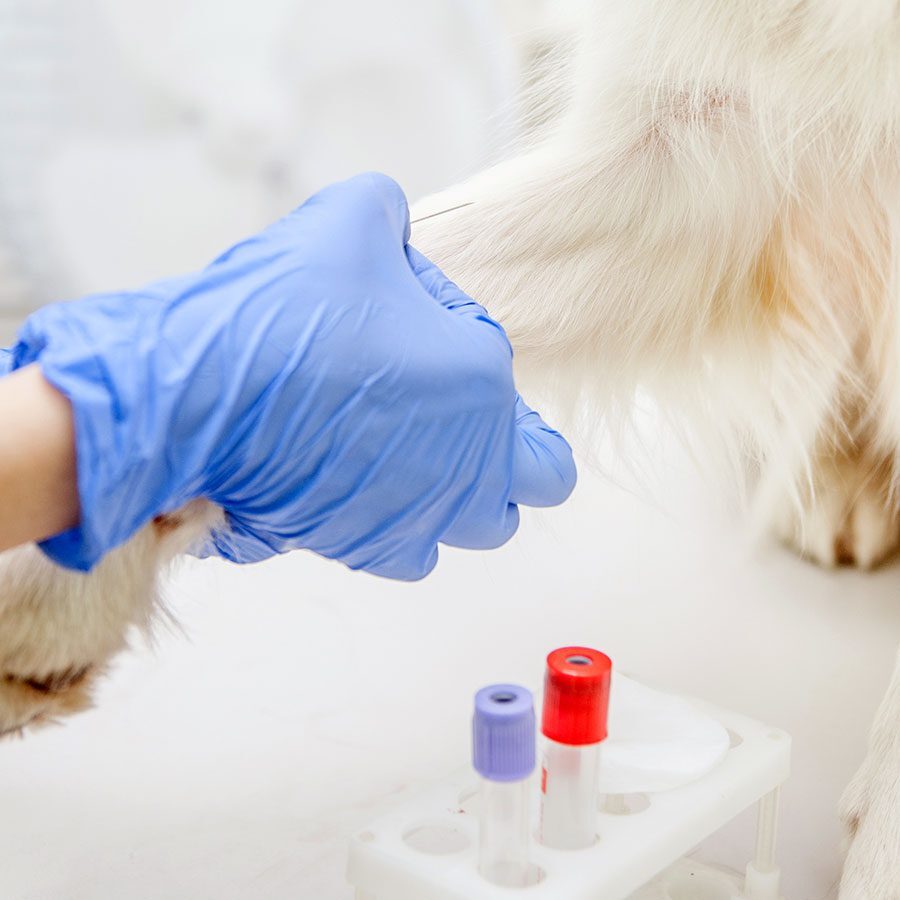Common Lab Tests for Dogs and Cats
We use a variety of laboratory tests to help us better understand your pet’s health. Here are some of the most commonly performed diagnostics and what they tell us:
Bloodwork
A complete blood count (CBC) evaluates red and white blood cells and platelets, helping detect anemia, infection, or inflammation. Chemistry panels assess organ function, such as liver, kidneys, and pancreas, as well as electrolytes and blood sugar levels.
Urinalysis
A urinalysis gives us important insights into kidney function, hydration status, and the presence of crystals, infection, or glucose in the urine. It often complements bloodwork to give a full picture of internal health.
Fecal testing
This test helps identify intestinal parasites like roundworms, hookworms, giardia, and others that may not cause visible symptoms. Even indoor pets can be exposed, so regular screening is key.
Heartworm and tick-borne disease testing
Annual testing for heartworm and tick-borne diseases like Lyme and anaplasmosis is essential in New England. These tests detect infections early, helping keep your dog healthy and protected.
Thyroid testing (T4)
This test evaluates thyroid hormone levels. It’s particularly important in older pets, as hypothyroidism is common in dogs and hyperthyroidism frequently affects senior cats.
Cytology
We examine samples taken from ear discharge, masses, skin, or hair under the microscope. This allows us to detect infections, inflammation, and abnormal cell growth right away.
When Should My Pet Have Lab Work?
Lab work isn’t just for sick pets. In fact, it’s one of the most important parts of proactive, preventive care. Catching concerns early allows us to act quickly, and often before symptoms are visible to you at home. We may recommend laboratory testing for your pet if:
- They’re coming in for an annual or semiannual wellness exam
- They’re scheduled for surgery or dental work (pre-anesthetic bloodwork)
- They’re experiencing vomiting, diarrhea, weight loss, or lethargy
- They have chronic conditions like diabetes, kidney disease, or thyroid imbalances
- You’ve noticed a new lump or bump
- You’re starting a new medication or monitoring the effects of an existing one
- They’re a senior pet, and it’s time for a routine health screen


